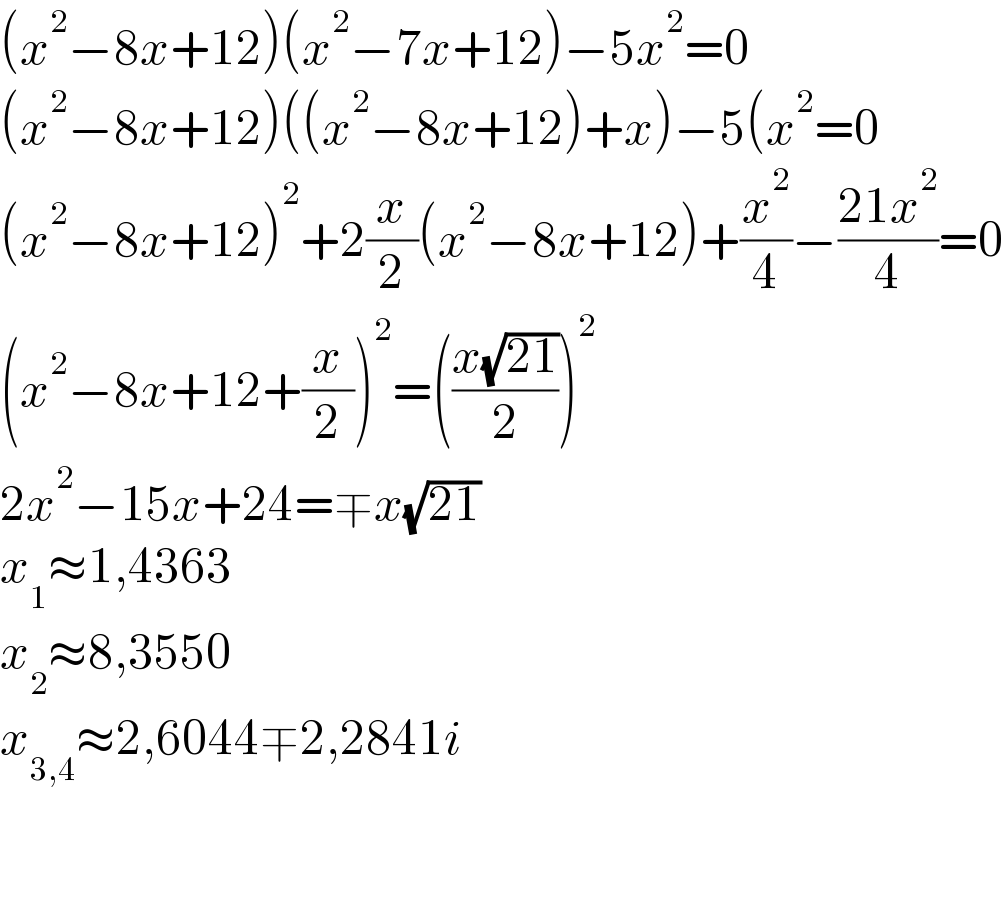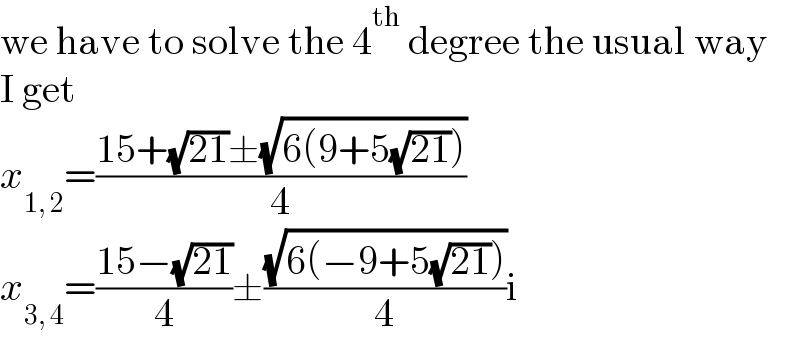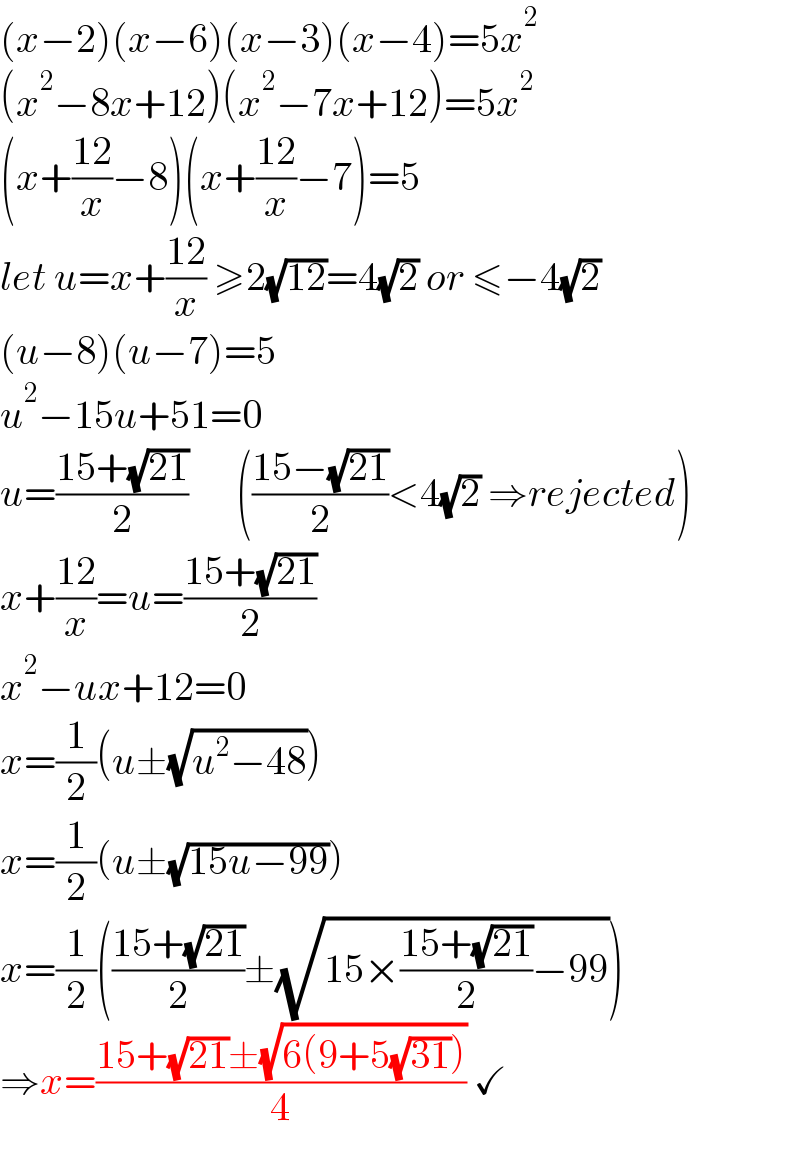
Question and Answers Forum
Question Number 173051 by mr W last updated on 05/Jul/22

Answered by dragan91 last updated on 06/Jul/22

Answered by MJS_new last updated on 06/Jul/22

Commented by mr W last updated on 06/Jul/22

Commented by dragan91 last updated on 06/Jul/22

Commented by mr W last updated on 06/Jul/22

Answered by mr W last updated on 06/Jul/22

Commented by Tawa11 last updated on 06/Jul/22

